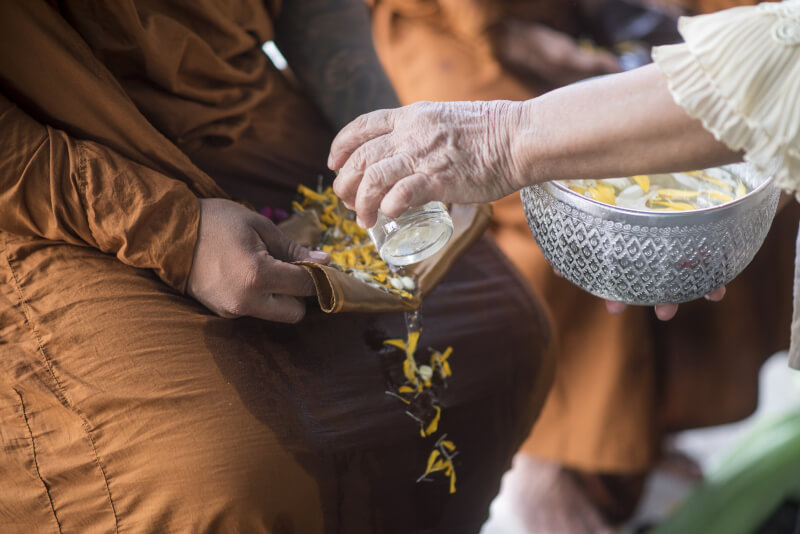The annals of history are ripe with tales of magic elixirs promising rejuvenation and cures for life’s ailments. Whisky, often referred to as the ‘water of life’, is not a stranger to these claims. Indeed, a quick online search links whisky to a myriad of health benefits. But to understand this association, we need to turn back time to post-medieval Scotland.
Monastic Medicines
The Middle Ages, infamous for its harsh living conditions, offered little solace to the sick. Health theories of the era still hung onto the musings of the Greek physician Galen, suggesting illnesses arose from an imbalance in the body’s ‘Four Humours’. With treatment options limited, monasteries became community bastions of hope. Equipped with hospitals, libraries, and herb gardens, they catered to the ailing, preserving knowledge and experimenting with remedies.

Monastic conditions also favored the birth of early whisky. Access to fresh water, grains, and time allowed monks to master distillation. The art of distillation has its roots in early alchemy, practiced by ancient Persian scientists like Jabir ibn Hayyan and Rhazes. As knowledge passed hands and crossed borders, it found its way to Scotland, thanks to scholars like the English Arabist Robert of Chester and the Scottish alchemist Michael Scot.
From Alchemy to Alcohol
Europe soon buzzed with the thrill of distillation. Alcohol’s discovery, with its alchemical background, promised a solution to humanity’s numerous health woes. This distilled spirit came to be termed ‘aqua vitae’ or water of life. It was around the 15th century that Scotland’s records mention it, with Lindores Abbey in Fife marking its entry. An Exchequer Roll from 1494 references Brother John Cor’s entitlement to distill, indicating an already thriving practice.
Whisky’s prominence was further elevated by the MacBeathads, or Beatons, a lineage serving as physicians to Scottish royalty. They relied on Arabic alchemical texts, emphasizing distillation, and played pivotal roles in the medical scene.
But as whisky became an established name in Scotland, it underwent a transformative phase. Beyond its therapeutic applications, it soon became the spirit of merriment. Hector Boece, in his 1527 writings, mentions its recreational use. However, its core remained medicinal. As Hannah Bower elucidates, “Aqua vitae sometimes played a dual role, both as a remedy and a mixing agent.”
Royal Endeavors and Renaissance Revelations
King James IV of Scotland, encapsulating the Renaissance spirit, was notably intrigued by aqua vitae. His investments led to various experiments, with the alchemist John Damian striving to concoct the ‘quintessence’ – using aqua vitae to attain immortality or turn metal into gold.
While the Renaissance (late 15th-17th century) ushered in a wave of scientific and medical discoveries, whisky’s therapeutic reputation remained unscathed. English poet Gervase Markham, in his 1683 writings, extols aqua vitae’s efficacy for curing a severe cough.
A recipe from Elizabeth Okeover’s medicinal recipe book (1675-1725) showcases aqua vitae as a treatment for indigestion. The preparation involved a combination of damask rose water, white sugar, red poppy, raisins, musk, and ambergris.
The Modern Dilemma
whiskey, or aqua vitae, occupied a unique space in the tapestry of historical medicine. Its rich history, interwoven with tales of survival and the perpetual search for remedies, presents a stark contrast to today’s digital age. But as we find ourselves at the zenith of technological advancements in medicine, with treatments being transformed by machines that learn and robots that perform surgeries, does whiskey still have a place in the medicinal domain?
For centuries, whiskey was hailed for its potential healing properties, often combined with herbs and other ingredients in an attempt to treat ailments. However, with the dawn of the 21st century and its cutting-edge medical research and technologies, several challenges emerge for whiskey’s traditional role:

- Scientific Scrutiny and Efficacy: Modern medicine operates on evidence-based practices. With rigorous clinical trials and systematic reviews, the standards have soared, making it challenging for traditional remedies like whiskey to compete. Even if whiskey does exhibit certain health benefits, these would need to be thoroughly researched and verified to gain acceptance in the medical community.
- Holistic Approach vs. Targeted Treatments: Today’s medical treatments often focus on targeted approaches. Gene therapies tailor treatments based on individual genetics, and nano-robots target diseased cells without affecting healthy ones. In such a landscape, the holistic nature of whiskey, touted to be a panacea for numerous ailments, appears unspecific.
- Safety and Standardization: With the myriad whiskey varieties available, achieving a standardized concentration for medicinal use poses a significant hurdle. This challenge is compounded by potential interactions between whiskey and modern medications, a concern scarcely considered in the medieval era.
- Perception and Misuse: In an age of battling substance abuse issues, promoting alcohol, even for medicinal purposes, is fraught with challenges. The blurry line between therapeutic use and overindulgence poses both social and medical concerns.
- Alternative Natural Remedies: As we rediscover the benefits of natural remedies, many herbs, essential oils, and non-alcoholic solutions are emerging as powerful therapeutic agents. These natural alternatives often sideline whiskey due to their perceived safety and specificity.
Integrating traditional knowledge like that of whiskey’s medicinal history with current medical practices is a tightrope walk. While the Renaissance period saw a marriage of old-world alchemical processes with new studies, today’s scenario necessitates a more careful fusion.
Turbulence and Trust
The unification of Scotland and England in 1707 was a bittersweet chapter for whisky. While it opened up new markets, it also brought along burdensome taxes. Illicit whisky production surged, with many farmers viewing it as both a supplementary income and a cheap remedy for day-to-day afflictions. Renowned poet Robert Burns even lamented the loss of the right to distill duty-free whisky at the Ferintosh estate in 1785.
The ensuing Highland Clearances witnessed a vast migration of Scots, taking with them their whisky-making skills and its therapeutic lore to lands as far as the Americas and Australia. Today, that legacy persists as many swear by a hot toddy at the first hint of a cold.
From monastic havens in medieval Scotland to global cabinets today, whisky’s reputation as a medicinal marvel stands tall. If it’s science or folklore fueling its therapeutic tales, one thing is certain: whisky’s place in history is as rich as its amber hue.
